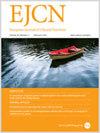日本工人膳食多样性与血清脂质指标之间的纵向联系。
IF 3.3
3区 医学
Q2 NUTRITION & DIETETICS
引用次数: 0
摘要
研究目的本研究旨在确定日本工人在五年随访期间饮食多样性评分与血清脂质指标之间的纵向关联:本研究纳入了 745 名年龄在 20-60 岁、基线时无血脂异常的 2012--2013 年参与者,他们在 2013 年至 2017 年期间至少参与了一次研究。使用食物频率问卷评估饮食摄入量,并使用膳食多样性定量指数确定膳食多样性得分。通过主成分分析确定了三种膳食模式:健康膳食、西式膳食和甜食。血脂指标包括总胆固醇、甘油三酯、低密度脂蛋白胆固醇、高密度脂蛋白胆固醇和非高密度脂蛋白胆固醇。在控制混杂因素的情况下,采用广义估计方程根据基线时的膳食多样性得分计算随访期间血脂状况的累积平均值:结果:膳食多样性得分越高,女性血清中的低密度脂蛋白胆固醇(趋势 p = 0.028)、甘油三酯(趋势 p = 0.029)和非高密度脂蛋白胆固醇(趋势 p = 0.026)浓度越低。除与血清甘油三酯的关联外,其他关联在对三种饮食模式(健康饮食、西式饮食和甜食)进行额外调整后均保持稳定。在对健康膳食模式进行额外调整后,与血清甘油三酯的关联消失了。在随访期间,膳食多样性与男性血脂异常之间没有明显关联:本研究表明,膳食多样性对日本女工的血脂状况有益。本文章由计算机程序翻译,如有差异,请以英文原文为准。

Longitudinal associations between dietary diversity and serum lipid markers in Japanese workers
The aim of this study was to determine the longitudinal associations between dietary diversity score and serum lipid markers in a five-year follow-up period in Japanese workers. This study included 745 participants aged 20–60 years in 2012–2013 without dyslipidemia at baseline who participated at least once from 2013 to 2017. Dietary intake was assessed using a food frequency questionnaire, and dietary diversity score was determined using the Quantitative Index for Dietary Diversity. Principal component analysis was used to determine three dietary patterns: healthy, western, and sweetener. Lipid markers including total cholesterol, triglycerides, LDL-cholesterol, HDL-cholesterol, and non-HDL-cholesterol were measured. Generalized estimating equations were used for calculating the cumulative mean of lipid profiles in the follow-up period according to the dietary diversity score at baseline with control of confounding factors. Higher dietary diversity score was inversely associated with serum concentrations of LDL cholesterol (p for trend = 0.028), triglycerides (p for trend = 0.029), and non-HDL cholesterol (p for trend = 0.026) in women. The associations except for the association with serum triglycerides were robust after additional adjustment for three dietary patterns (healthy, western, and sweetener). The association with serum triglycerides disappeared after additional adjustment for a healthy pattern. There was no significant association between dietary diversity and dyslipidemia in men in the follow-up period. This study suggests that dietary diversity is beneficial for lipid profiles in Japanese female workers.
求助全文
通过发布文献求助,成功后即可免费获取论文全文。
去求助
来源期刊
CiteScore
10.60
自引率
2.10%
发文量
189
审稿时长
3-6 weeks
期刊介绍:
The European Journal of Clinical Nutrition (EJCN) is an international, peer-reviewed journal covering all aspects of human and clinical nutrition. The journal welcomes original research, reviews, case reports and brief communications based on clinical, metabolic and epidemiological studies that describe methodologies, mechanisms, associations and benefits of nutritional interventions for clinical disease and health promotion.
Topics of interest include but are not limited to:
Nutrition and Health (including climate and ecological aspects)
Metabolism & Metabolomics
Genomics and personalized strategies in nutrition
Nutrition during the early life cycle
Health issues and nutrition in the elderly
Phenotyping in clinical nutrition
Nutrition in acute and chronic diseases
The double burden of ''malnutrition'': Under-nutrition and Obesity
Prevention of Non Communicable Diseases (NCD)

 求助内容:
求助内容: 应助结果提醒方式:
应助结果提醒方式:


